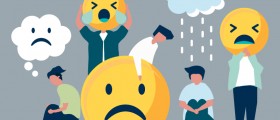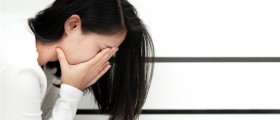
Depression as a false identity
Depression is a common problem, but it usually goes unnoticed. People often think about someone’s depression as about the part of the patient’s personality. Occasionally, doctors and health care providers may suspect that patient’s symptoms originate from depression, and may ask a patient to fill out a brief questionnaire, which is used to check for depression symptoms.
Depression sometimes occurs as a single manifestation of some other mental illness. For example, people suffering from bipolar disorder commonly experience extreme mood swings as their mood varies from hyperactive and manic to severely depressed. Another condition that may cause depression symptoms is the adjustment disorder, which occurs as a strong emotional reaction to a difficult and stressful event in life. In some cases, people perceive the stressor as something very hard to cope with, and experience classical symptoms of depression.
Diagnosing depression correctly may make a huge difference in the patient’s life, since many of the available treatments come off as very effective for most people.
Diagnostic criteria for depression
To meet the diagnostic criteria for depression, patient has to have at least five or more of the relevant symptoms over a two-week period, at least. At least one of the symptoms must be either loss of interest or pleasure or depressed mood. Depressed people feel sad, empty, irritable and tearful for most part of the day. Their interest in normally enjoyable and pleasant activities suddenly diminishes. In many cases, patients will have noticeable changes in weight: rapid and unexplained weight loss or weight gain, accompanied by either increase or decrease in appetite. These people usually feel very tired and deprived of energy, while suffering from insomnia. Their self-image is usually disturbed as they start feeling worthless or guilty for no obvious reason.
They have changes in mental capacity, problems with concentration and decision-making. In most severe cases, the affected individuals think about suicide or even attempt it.

















Your thoughts on this
Loading...